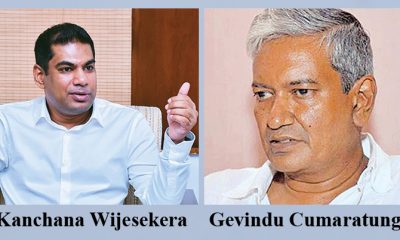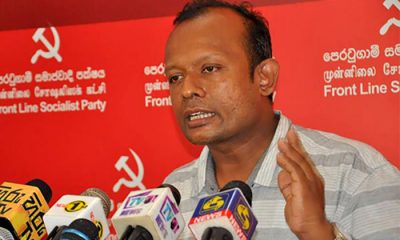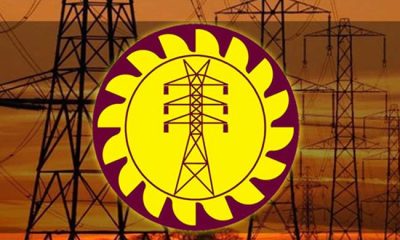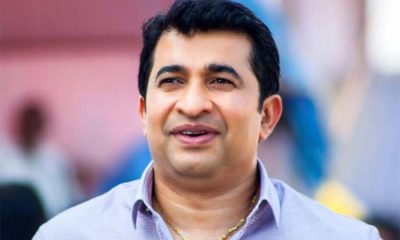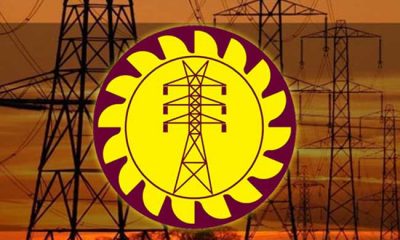News
CEB experienced staff in alarming exodus after inflation, taxes: Union
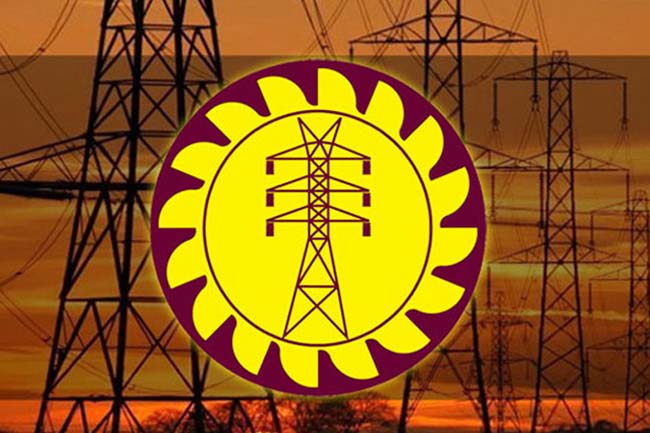
ECONOMYNEXT –State-run Ceylon Electricity Board is losing qualified engineers at an alarming rate, after a currency collapse and new progressive taxes slapped on the debased salary, and they are not coming back, union officials said.
Ceylon Electricity Board has a cadre of around 1,000 engineers but they have been usually managing with lower levels of around 900, they said.
Since 2022, about 150 have left the CEB for foreign countries, leading to serious gaps in some branches with engineering staff down to about 750, Dhanushka Parakramasinghe, President of the CEB Engineers Union told reporters in Colombo.
Sri Lanka’s rupee collapsed from 200 to 330 to the US dollar in 2022 after two years of money printed by macro-economists to target ‘potential output’ using ‘data driven’ monetary policy, followed by a float failure with a surrender rule.
About 105 engineers have resigned and about 54 have taken leave, Parakramasinghe said.Most have left with jobs already found.There have been reports that doctors who left the country are coming back.
“Engineers are not coming back,” Parakramasinghe said. “Some are coming back to resign. Some who left on leave having got PR, have sent resignation letters from abroad.”
Engineers are leaving for Ireland, Australia and New Zealand, to work in utilities and also the mining sector.
Sri Lanka’s coal power complex needs 96 staff and they are now down to 70, he said. CEB runs in shifts, round the clock.
Coal plant staff can easily get jobs in the mining sector in many countries including South Africa, where heavy machinery is in operation, he said.
“But our people usually like to go to Australia or Western European countries,” Parakramasinghe said.
Those who are leaving are offered jobs from 4,000 to 8,000 dollars based on experience and type of jobs, he said.
Engineers working in operations and maintenance (O & M) in transmission and generators are also in high demand abroad, the Union said.
An entry level engineer gets around 150,000 to 170,000 rupees, at the CEB. It works out to around 5 dollars a day. At the central bank, which debases money, office assistants were paid 186,000 according to disclosures made in parliament.
Sri Lanka’s progressive taxes under an International Monetary Fund program, apply from around 3 dollars a day (100,000 rupees) through pay-as-you-earn taxes.
On one side senior staff are retiring and the CEB is seeing a drain of middle level staff who have about 10 years of experience, who are next in line, the Union said.
CEB will have problems maintaining service if the staff go abroad at this level, Buddhika Wijayawardhana, joint secretary of the CEBEU said.There is also no incentive for young graduates to join the CEB under current conditions, he said.
Sri Lanka has some of the highest housing costs in the world, based on calculations done by reputed organizations, union officials said, and acquiring a house is now next to impossible. The same applied to a car.
Comparable living standards elsewhere was much higher. Salary was a key reason for people leaving.At one time low interest rates were given for staff for housing, which was now in doubt he said.
After Sri Lanka’s rupee was left without a credible monetary anchor from around 1978, Sri Lanka’s interest rates and inflation shot up for ordinary people but some private and state entities gave low interest rate loans to staff.
News
Teachers’ unions ‘ready to bring govt. to its knees’
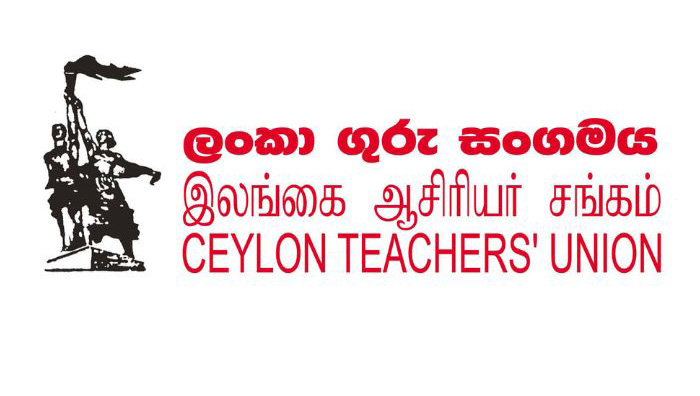
Teachers, principals up in arms against alleged NGO driven education reforms
Teachers, principals and education professionals on Friday vowed to commence a nationwide campaign against the government’s plans to reform the education sector at the expense of what they described as cultural values.
President of the All-Ceylon United Teachers’ Association Ven Yalwala Pannasekera thera addressing a press conference yesterday said that trade unionists would join forces to urge the government to withdraw its educational reforms.
“We are ready to form a common front with education professionals, teachers and principals against this government. We demand that the government withdraw these reforms or get ready to go home,” Ven Pannasekera said.
“Some modules promote homosexuality. Contents in some of the modules being distributed have been copied from Indian text books.
We ask the government to explain why it had paid the National Education Institute curriculum designers,” Ven Pannasekera said.
Meanwhile, representatives of 16 teachers’ and principals’ unions visited the National Child Protection Authority yesterday to lodge a complaint demanding a probe into the inclusion of materials promoting homosexuality in school books.
Concerns were also raised at a National Sangha Council meeting held in Colombo last week at the Colombo Foundation Institute, organised to discuss the objectives of the proposed reforms.
Addressing the gathering, Professor Venerable Induragare Dhammaratana Thera said the reforms required extensive discussion, consultation with subject experts and consideration of the experience of senior administrators.
He warned that the proposed education reforms could trigger the biggest crisis currently facing the country. “Implementing these reforms in this manner will harm future generations and could even destroy the present government,” he said, likening the process to “forcing a round peg into a square hole.”
News
Education Ministry drops idea of extending school hours
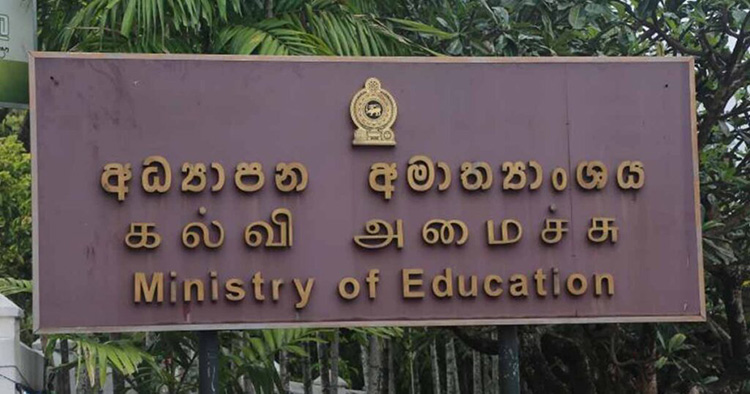
The Ministry of Education on Friday decided not to extend school hours for the 2026 academic year, citing the ongoing impact of recent disasters on schools and transport systems in several provinces.
According to the Ministry, school hours for Grades 5 to 13 will remain unchanged at 7:30 a.m. to 1:30 p.m. until both education and transport networks are fully restored.
Government schools, government-approved private schools, and pirivenas are set to begin the first term of 2026 on January 5. Students in Grades from 6 to 13 will have seven 45-minute periods a day.
Education reforms will be introduced for Grades 1 and 6 in 2026.
The Ministry confirmed that activity books for Grade 1 and learning modules for Grade 6 will be distributed before lessons begin. Textbooks for all other grades have already been fully handed out.Meanwhile, the remaining sessions of the 2025 G.C.E. Advanced Level examination are scheduled to take place from January 12 to January 20, 2026.
by Chaminda Silva ✍️
News
SLRC to disburse Rs 2420 mn in relief funds to 28,000 families

The Sri Lanka Red Cross Society will provide relief funds totaling Rs. 2,420 million to assist 20,000 families displaced and 8,000 families who have lost their livelihoods due to cyclone Ditwah.
Accordingly, the Society has arranged to give Rs. 1,620 million to 20,000 displaced families, at the rate of Rs. 85,000 per family, and Rs. 800 million to 8,000 families who lost their livelihoods, at Rs. 100,000 per family, Sri Lanka Red Cross Communications Head Navindra Senarathne told the Sunday Island on Friday.
He said the funds for the 20,000 displaced families would be distributed in three instalments.
A total of 20,000 families across the country, including 1,505 families in the Trincomalee District, have been selected for this relief, with beneficiaries identified by the decision-makers of the Sri Lanka Red Cross Society, he added.
In addition, the Society is preparing to install toilet systems in 400 safe centers and provide 15,000 sets of school equipment worth Rs. 7.5 million, Navindra Senarathne told the Sunday Island.
By Sirimantha Rathnasekera ✍️
-

 Sports7 days ago
Sports7 days agoGurusinha’s Boxing Day hundred celebrated in Melbourne
-

 News2 days ago
News2 days agoHealth Minister sends letter of demand for one billion rupees in damages
-

 News5 days ago
News5 days agoLeading the Nation’s Connectivity Recovery Amid Unprecedented Challenges
-

 Features6 days ago
Features6 days agoIt’s all over for Maxi Rozairo
-

 Opinion4 days ago
Opinion4 days agoRemembering Douglas Devananda on New Year’s Day 2026
-

 News6 days ago
News6 days agoDr. Bellana: “I was removed as NHSL Deputy Director for exposing Rs. 900 mn fraud”
-

 News5 days ago
News5 days agoDons on warpath over alleged undue interference in university governance
-

 Features6 days ago
Features6 days agoRebuilding Sri Lanka Through Inclusive Governance




